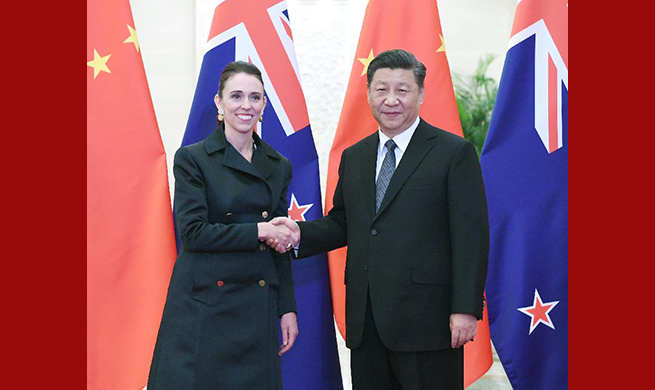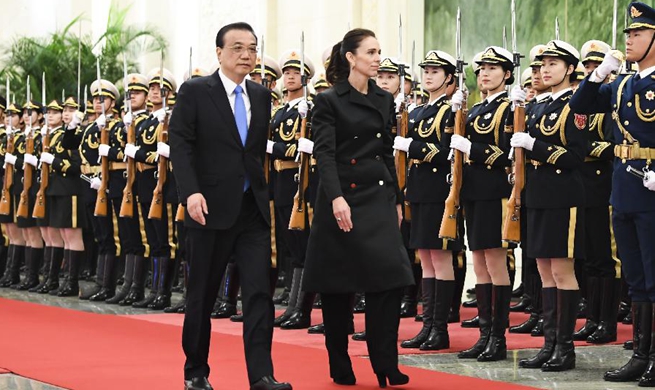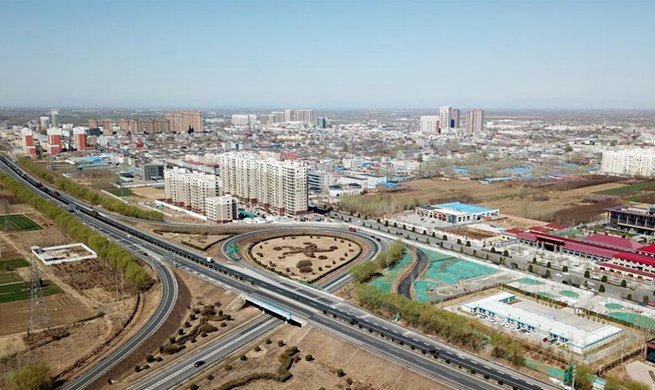ROME, April 2 (Xinhua) -- Italy is likely to be forced to compensate for lower exports and perhaps even the return of thousands of mid-level and blue collar workers when Great Britain finally withdraws from the European Union.
The country had been expected to leave the European Union March 29. But the government secured an extension as the so-called "Brexit" negotiations stalled, with British lawmakers deciding which of four plans (or perhaps no plan at all) will be used to guide the first-ever departure of a nation from the European Union.
Meanwhile, the 27 member states that will remain in the European Union are bracing for the process of erecting commercial and immigration barriers between them and Europe's second largest economy.
"By most measures, Italy will suffer less than other countries in Europe," Giuseppe De Arcangelis, a professor of international economics at Rome's La Sapienza University, told Xinhua. "But there will still be significant difficulties for Italy."
De Arcangelis and other analysts noted that in terms of negotiating the European Union's terms for Brexit, Italy is staying in line with other European Union member states and so not charting its own course as it has done in some other areas.
But that does not make the country immune to direct impacts from the process, according to Antonio Villafranca, research coordinator and the co-head of the Center on Europe and Global Governance for the Italian Institute for International Political Studies, a think tank.
"Around 5 percent of Italy's trade goes to Great Britain and there are those who say that percentage will shrink a little but that it won't be too bad," Villafranca said in an interview. "But I don't agree. Italy's trade surplus with Great Britain is worth 12 billion euros (13.5 billion U.S. dollars), which is not an insignificant amount. If that is reduced, it will be a blow to Italy's economy."
Italy's exports to Great Britain are concentrated in a few key areas such as manufactured mechanical parts, fashion items, and food and wine. With Brexit in place, those items would be taxed differently, increasing prices and reducing demand. The impacts would be concentrated more in the wealthier, industrialized northern parts of the country, Villafranca said.
"The exports won't go to zero but they will be reduced," Villafranca said. "For Italy's economy, which is continually either in recession or on the edge of recession, that is an unwelcome development."
Depending on the Brexit plan that is eventually adopted, any gaps in trade rules could use those already in place with the World Trade Organization. In that case, Villafranca and De Arcangelis said, it would be to Italy's advantage to push for more specific trade terms quickly.
There's another Italian export that De Arcangelis said worth taking into consideration: workers. There are an estimated 250,000 Italians working in London, De Arcangelis said, the second largest diaspora in the city after those from Poland. Depending on visa rules, some may be forced to leave.
"If that happens, highly-skilled workers will find job elsewhere," De Arcangelis said. "But medium-skilled workers or lower-skilled workers like waiters or laborers won't have that option. Many may end up returning to Italy, where unemployment rates are already too high."












